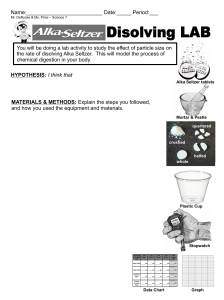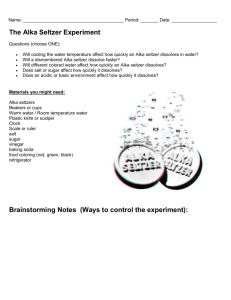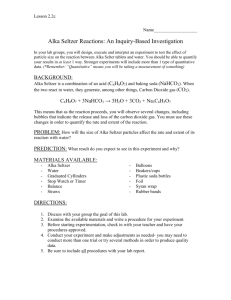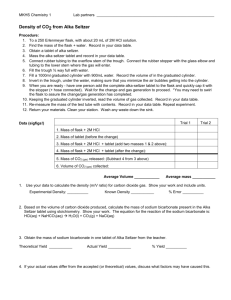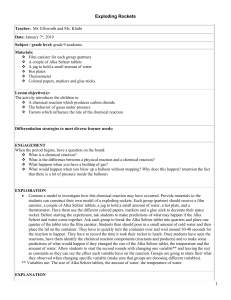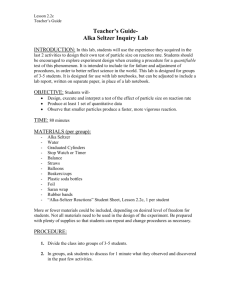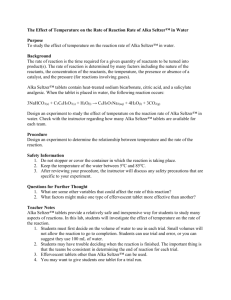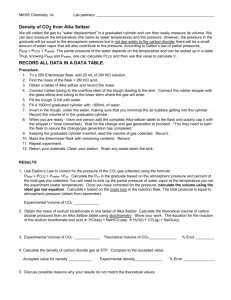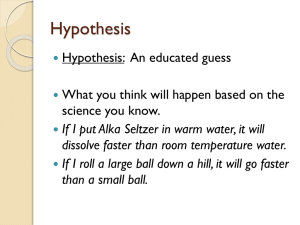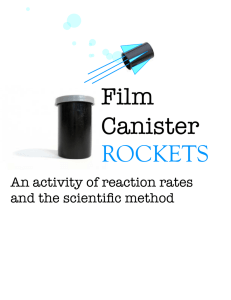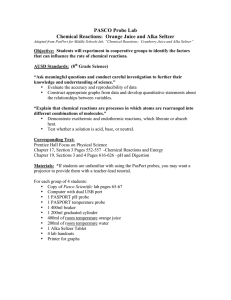Scientific Method Class Notes
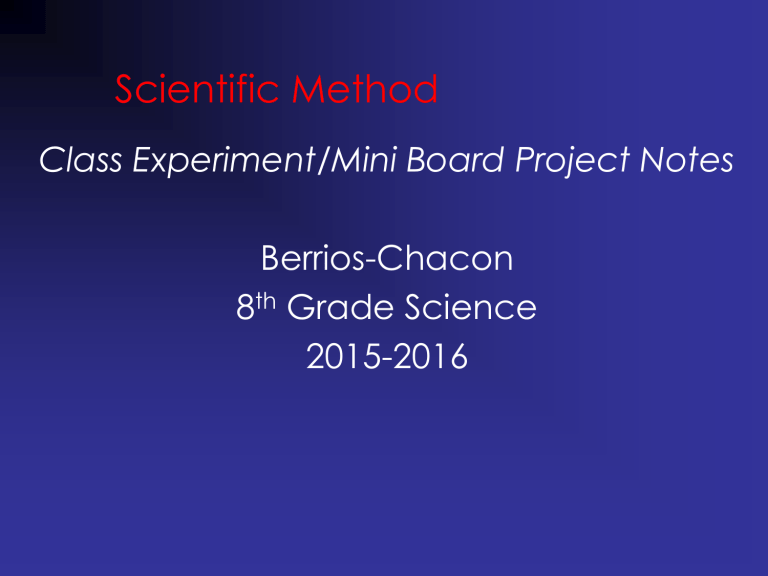
Scientific Method
Class Experiment/Mini Board Project Notes
Berrios-Chacon
8 th Grade Science
2015-2016
Scientific Method
A series of planned steps used to answer questions and to solve problems
•Used in any science experiment or project.
•Used everyday since you were born.
8 Steps of the Scientific Method
Question
Observation
Inference
Hypothesis
Experiment
Results
Analysis
Conclusion
Queens
Offer
Indians
Help
Eating
Raspberries
And
Cherries
Scientific Method
Question
Observation
Inference
Hypothesis
Experiment
Results
Analysis
Conclusion
What do you want to know?
Use 5 senses (6 senses for girls)
Prior knowledge
If/then/because statement
Test/Procedures
Data
Organize data (graph)
What did you find out?
Question
Does the amount of Alka Sletzer affect the time it takes to react?
Observation…
• Alka Seltzer is white in color
• Smooth texture
• Powdery surface
• Circular Shape
• Brittle
• Fild cannnister is plastic/smooth texture
• Cylinder in shape
• Transparent
• Has Removalbe lid
Inference….
• Alka Seltzer is used to medicate stomach problems
• Dissolves in water
• Alka Seltzer cause chemical reaction
• Even the smallest amount of Alka
Seltzer can cause a chemical reactino.
Hypothesis
If the amount of Alka Selzter is increased, then the reaction time will decrease because very small amounts of Ala Selzter causes a chemical reaction.
Materials
• Alka Seltzer
– ¼ Tablet
– ½ Tablet
– 1 whole Tablet
• 1 cup of water
• 3 Plastic film cannisters
• Stop Watch
• Journal
• Pencil
Experiment
Control
-A standard for comparison in an experiment.
-all the components that are kept the same.
Variable
A changeable factor in a controlled investigation.
-Only one variable should be tested at a time during an experiment!
2 Types of Variables
1. Independent
Variables
-the variable we change
2. Dependent
Variables
-the thing being measured
Identify Variables
Independent:
(What are we changing/testing?)
Dependent:
(what are we measuring?)
The amount of Alka Selzter The reaction time ( The time it takes to explode)
Controls for Experiment
The things that MUST remain the same for your experiment to be valid
1. Amount and Temperature of Water
2. Size of canisters
3. Brand of Alka Seltzer
4. Location
5. Environmental Factors
Experiment/Procedures
1. Pour water into canister half full.
2. Place canister on flat surface.
3. Carefully drop ¼ tablet inside canister, quickly close lid, stand back, start timer.
4. Observe
5. Take final time when canister pops.
6. Record results
7. Repeat steps 1-6 for all other tablet amounts
Time to go blow stuff up!!.....
Because it’s Science!
Results
¼ Tablet
18 Seconds
½ Tablet
7 Seconds
1 Tablet
4 Seconds
Making Graphs
-Use a straight edge
-Title the Graph
-Include values of pie slices or bars
-Color
-Label your axis.
DRY/MIX
D
ependent
R
esults
Y
-axis
M
odify
I
ndependent
X
-axis
Analysis/Graph
20
18 Seconds
BOOM!!
15
10
5
7 Seconds
4 Seconds
¼ Tablet ½ Tablet 1 Tablet
Amount of Alka Seltzer
Conclusion
Paragraph Form
3 rd person
• What does the data tell us?
• Was the hypothesis correct?
• Were any mistakes made?
• How could we change the experiment in the future?
• What was learned from this experiment?
• How can we apply this to real life?
• Conclusion (Paragraph Form)
• After running the experiment, it was evident that as the amount of Alka Seltzer increased, there was a decrease in reaction time.
• The hypothesis was correct. The whole Alka seltzer had the fastest reaction time.
• There were no errors in the experiment.
• In the future, the scientist will add more trials, test more amounts, and may also change the independent variable to water.
• This experiment would be beneficial in medicine and help create public awareness about the increased effects and possible rapid treatment of stomach problems in people.
Introduction Checklist
Written in paragraph form
3 rd Person
Question
Observations
Inferences
Hypothesis
Independent Variable
Dependent Variable
Research
